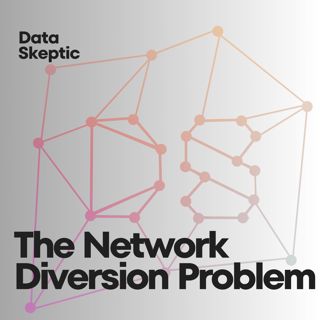
Data Fest 2015
This episode contains converage of the 2015 Data Fest hosted at UCLA. Data Fest is an analysis competition that gives teams of students 48 hours to explore a new dataset and present novel findings. This year, data from Edmunds.com was provided, and students competed in three categories: best recommendation, best use of external data, and best visualization.
28 Huhti 201527min
![[MINI] Cornbread and Overdispersion](https://cdn.podme.com/podcast-images/99E5B4C49CC9487AB4880B5C8DF050F0_small.jpg)
[MINI] Cornbread and Overdispersion
For our 50th episode we enduldge a bit by cooking Linhda's previously mentioned "healthy" cornbread. This leads to a discussion of the statistical topic of overdispersion in which the variance of some distribution is larger than what one's underlying model will account for.
24 Huhti 201515min
![[MINI] Natural Language Processing](https://cdn.podme.com/podcast-images/99E5B4C49CC9487AB4880B5C8DF050F0_small.jpg)
[MINI] Natural Language Processing
This episode overviews some of the fundamental concepts of natural language processing including stemming, n-grams, part of speech tagging, and th bag of words approach.
17 Huhti 201513min

Computer-based Personality Judgments
Guest Youyou Wu discuses the work she and her collaborators did to measure the accuracy of computer based personality judgments. Using Facebook "like" data, they found that machine learning approaches could be used to estimate user's self assessment of the "big five" personality traits: openness, agreeableness, extraversion, conscientiousness, and neuroticism. Interestingly, the computer-based assessments outperformed some of the assessments of certain groups of human beings. Listen to the episode to learn more. The original paper Computer-based personality judgements are more accurate than those made by humansappeared in the January 2015 volume of the Proceedings of the National Academy of Sciences (PNAS). For her benevolent Youyou recommends Private traits and attributes are predictable from digital records of human behavior by Michal Kosinski, David Stillwell, and Thore Graepel. It's a similar paper by her co-authors which looks at demographic traits rather than personality traits. And for her self-serving recommendation, Youyou has a link that I'm very excited about. You can visitApplyMagicSauce.com to see how this model evaluates your personality based on your Facebook like information. I'd love it if listeners participated in this research and shared your perspective on the results via The Data Skeptic Podcast Facebook page. I'm going to be posting mine there for everyone to see.
10 Huhti 201531min
![[MINI] Markov Chain Monte Carlo](https://cdn.podme.com/podcast-images/99E5B4C49CC9487AB4880B5C8DF050F0_small.jpg)
[MINI] Markov Chain Monte Carlo
This episode explores how going wine testing could teach us about using markov chain monte carlo (mcmc).
3 Huhti 201515min
![[MINI] Markov Chains](https://cdn.podme.com/podcast-images/99E5B4C49CC9487AB4880B5C8DF050F0_small.jpg)
[MINI] Markov Chains
This episode introduces the idea of a Markov Chain. A Markov Chain has a set of states describing a particular system, and a probability of moving from one state to another along every valid connected state. Markov Chains are memoryless, meaning they don't rely on a long history of previous observations. The current state of a system depends only on the previous state and the results of a random outcome. Markov Chains are a useful way method for describing non-deterministic systems. They are useful for destribing the state and transition model of a stochastic system. As examples of Markov Chains, we discuss stop light signals, bowling, and text prediction systems in light of whether or not they can be described with Markov Chains.
20 Maalis 201511min

Oceanography and Data Science
Nicole Goebel joins us this week to share her experiences in oceanography studying phytoplankton and other aspects of the ocean and how data plays a role in that science. We also discuss Thinkful where Nicole and I are both mentors for the Introduction to Data Science course. Last but not least, check out Nicole's blog Data Science Girl and the videos Kyle mentioned on her Youtube channel featuring one on the diversity of phytoplankton and how that changes in time and space.
13 Maalis 201533min
![[MINI] Ordinary Least Squares Regression](https://cdn.podme.com/podcast-images/99E5B4C49CC9487AB4880B5C8DF050F0_small.jpg)
[MINI] Ordinary Least Squares Regression
This episode explores Ordinary Least Squares or OLS - a method for finding a good fit which describes a given dataset.
6 Maalis 201518min



















